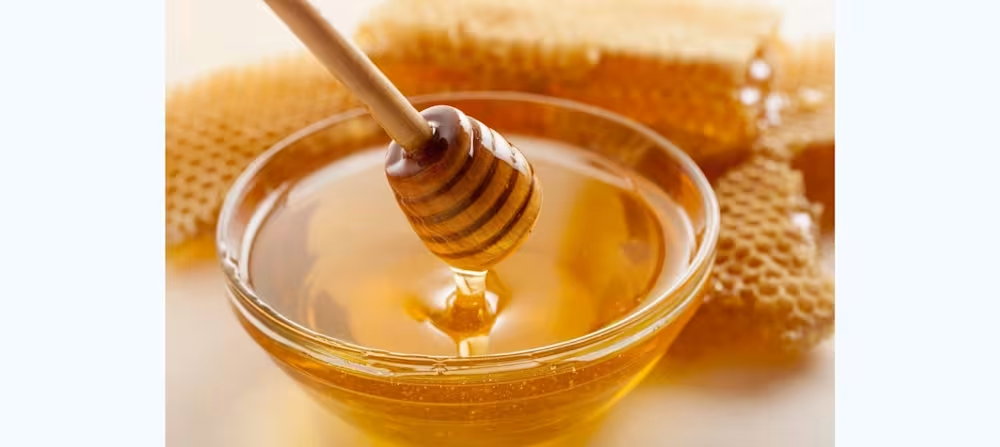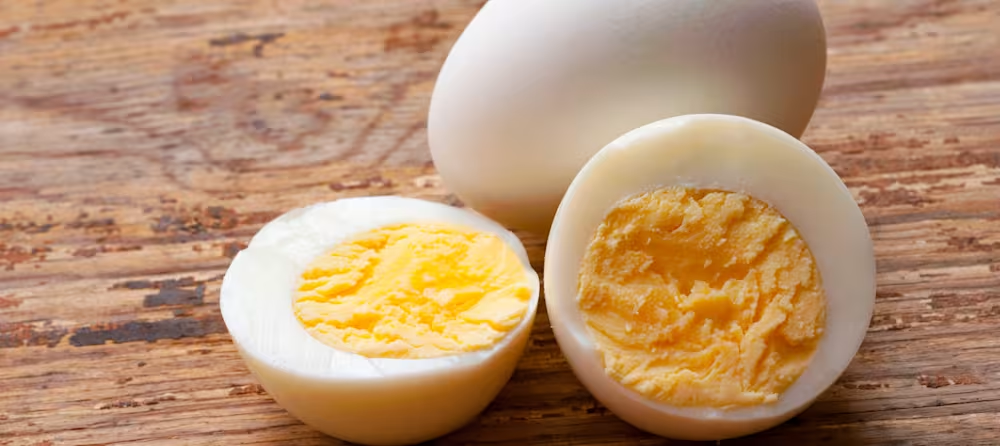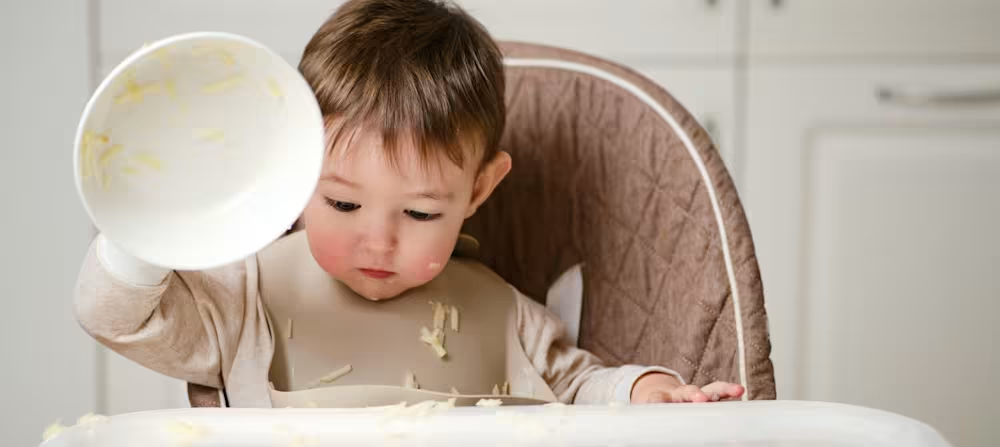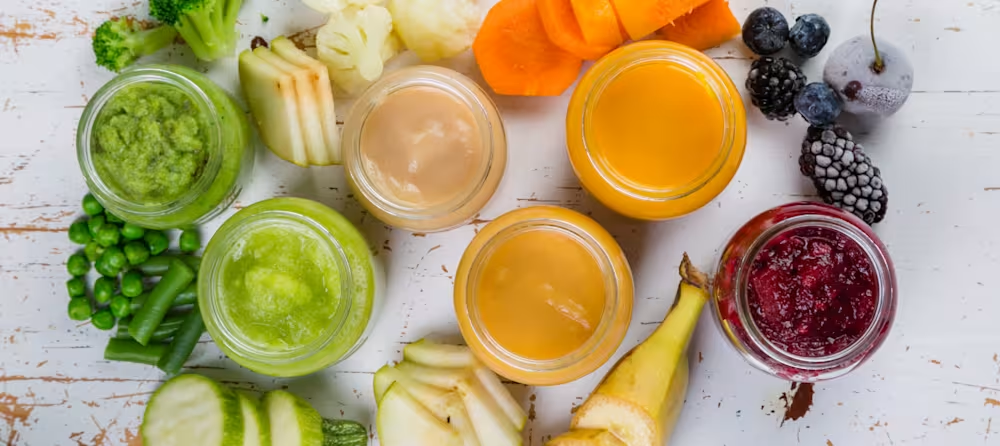Cereal for babies: When can babies eat cereal?
Updated Jan 16, 2026

Infant cereal has long been recommended as a first food for babies — but have you ever wondered why? This article will detail the reasons why you may, or may not, want to include cereal in your baby’s diet given nutrition and allergy information. We break it all down so you can make the best decision for your family.
Can babies have cereal?
Typically yes, babies can have cereal, especially cereals that are made specifically for infants. These include iron-fortified rice, oat, or other multigrain-based cereals that are widely available at most grocery stores. Older babies may be able to eat some whole grain cold breakfast cereals, like Cheerios.
When choosing a cereal for your baby, make sure to read the nutrition label and choose one with as few added sugars as possible.
In addition, according to the CDC [], serving only rice cereal to your baby is not recommended because it puts your baby at risk of being exposed to arsenic. Serve your baby a variety of cereals such as oats, barley, and other grains.
Is cereal healthy for babies?
Cereal can be a healthy addition to a baby’s diet, especially iron-fortified versions. Cereal may also provide important nutrients — such as carbohydrates and fiber — that help support your baby’s growth and development.
Cereal nutrients for babies
Cereals may provide a variety of different nutrients depending on the specific type or brand, but overall, you can expect cereal to be a source of carbohydrates for your baby. Carbohydrates provide babies with much-needed fuel for energy and growth. Additionally, fortified cereals provide vitamins and minerals such as iron, folate, calcium, and zinc.
When can babies eat cereal?
Babies can start to eat some cereals, such as infant cereal or oatmeal, around 6 months when they begin eating solid food. Older babies, around 8 to 9 months, may eat cold breakfast cereals.
Can babies between 6 and 9 months old eat cereal?
Yes, babies between 6 and 9 months old can eat cereal. Choose soft cereals such as an iron-fortified grain cereal or oatmeal made with breast milk, formula, or water. Fortified infant cereals are a good source of iron for growing babies.
Can babies between 9 and 12 months old eat cereal?
Babies can continue to eat cereal between 9 and 12 months of age. Many babies at this age have the feeding skills to eat cold breakfast cereals or regular oatmeal. Watch out for added sugars in processed, ready-to-eat cereals.
Can babies over 12 months old eat cereal?
Babies over 12 months can continue to enjoy cereal, but they likely no longer need infant-specific cereals. They can enjoy ready-to-eat warm cereals like oatmeal or cold breakfast cereals. Again, it’s best to be mindful of ingredients, such as added sugars.
How to introduce cereal for your baby
Cereal is easy to prepare and introduce to your baby. Start with an infant cereal or oatmeal and add water, breast milk, or formula to create a smooth, thin texture. Thicken the texture as your baby advances their eating skills. Serve cereal without adding sugar.
Cereal can also be a great way to introduce common allergens such as peanut butter or other nut butters. Mix in a small amount and check to make sure it’s not too thick.
Serving cereal for baby-led weaning
To include cereal in a baby-led weaning approach, prepare it as usual and allow your baby to self-feed. Offer a pre-loaded spoon or place it in a small bowl for your baby to eat with their hands.
Cereal puree for babies
Infant cereals can be easily made into a variety of puree textures. Start with more liquid to make a smooth, thin puree. Advance texture once your baby masters the previous texture.
Is cereal a common allergen?
It depends! Typically, infant cereals are made out of rice or oats, which are not common allergens. However, some cereals may contain wheat, which is a common allergen. If your baby has a food allergy, check the package to make sure the product isn’t processed in the same facility as the allergenic food. Keep your eye out for any signs of an allergic reaction when you're first introducing any new food.
Is cereal a choking hazard?
Generally speaking, cereal isn’t a choking hazard for babies. However, infant cereal may become sticky or chewy if enough liquid is not added. Additionally, some cold breakfast cereals may pose a choking risk due to their shape, size, or texture.
Takeaway
Cereal can be a helpful first food: Iron-fortified infant cereals and oatmeal can support growth and help meet babies’ iron needs once solids begin around 6 months.
Variety matters: Offering oats, barley, and multigrain cereals — not just rice cereal — helps reduce arsenic exposure and supports a more balanced diet.
Age and texture are key: Start with thin, smooth cereals for younger babies, then gradually thicken textures and introduce cold cereals as feeding skills develop (typically after 8 - 9 months).
Read labels closely: Choose cereals with little to no added sugar and be mindful of ingredients, especially as babies move toward family-style foods after 12 months.
Cereal is optional, not required: Whether or not cereal is part of your baby’s diet, most babies can meet their nutritional needs through a variety of solid foods when offered thoughtfully and safely.
Share article:
Note: The content on this site is for informational purposes only and should not replace medical advice from your doctor, pediatrician, or medical professional. If you have questions or concerns, you should contact a medical professional.
1 Sources
Share article:









